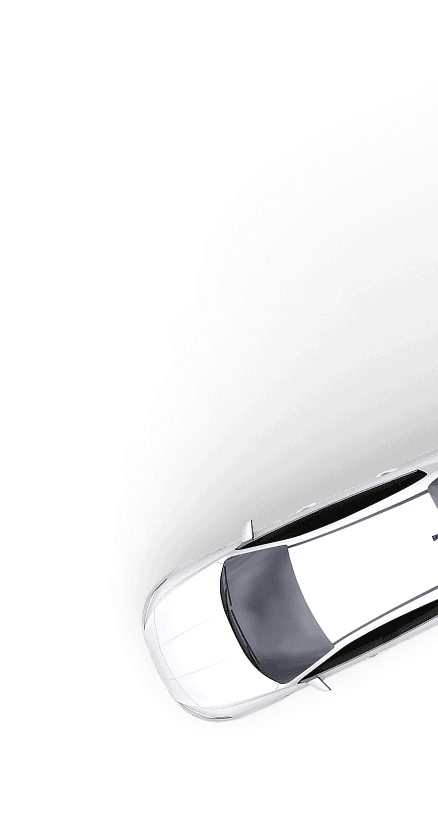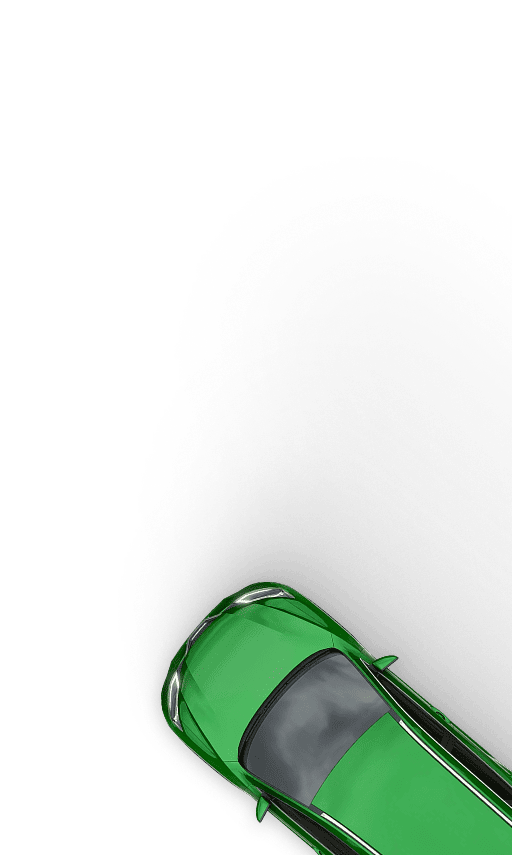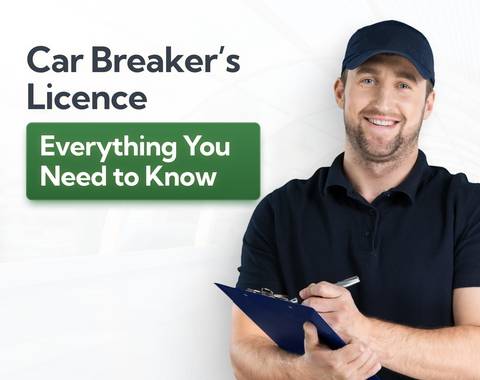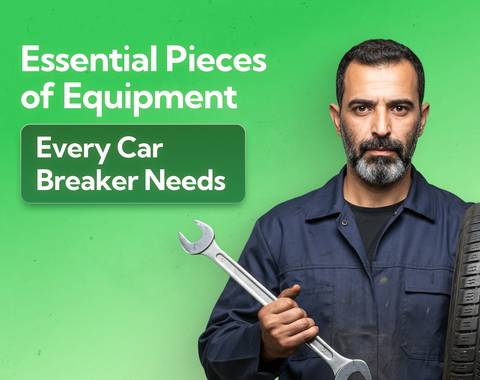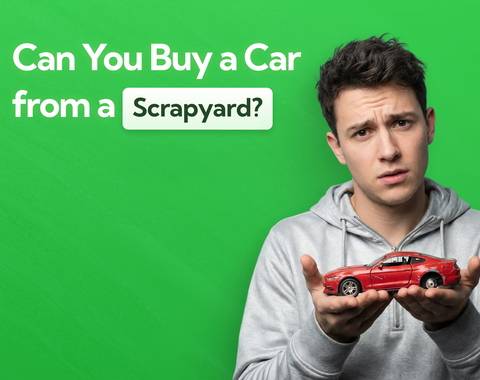How Much is My Van Worth for Scrap in the UK?
Wondering how much your van is worth for scrap? From weight and metal prices to condition and location, several factors affect what you’ll get. Learn how to value your van, the legal steps to scrap it, and how to secure the best possible price in the UK.
Last updated: 13th October, 2025

Award-winning CEO driving growth and social impact across automotive, recycling, and technology-led enterprise platforms.
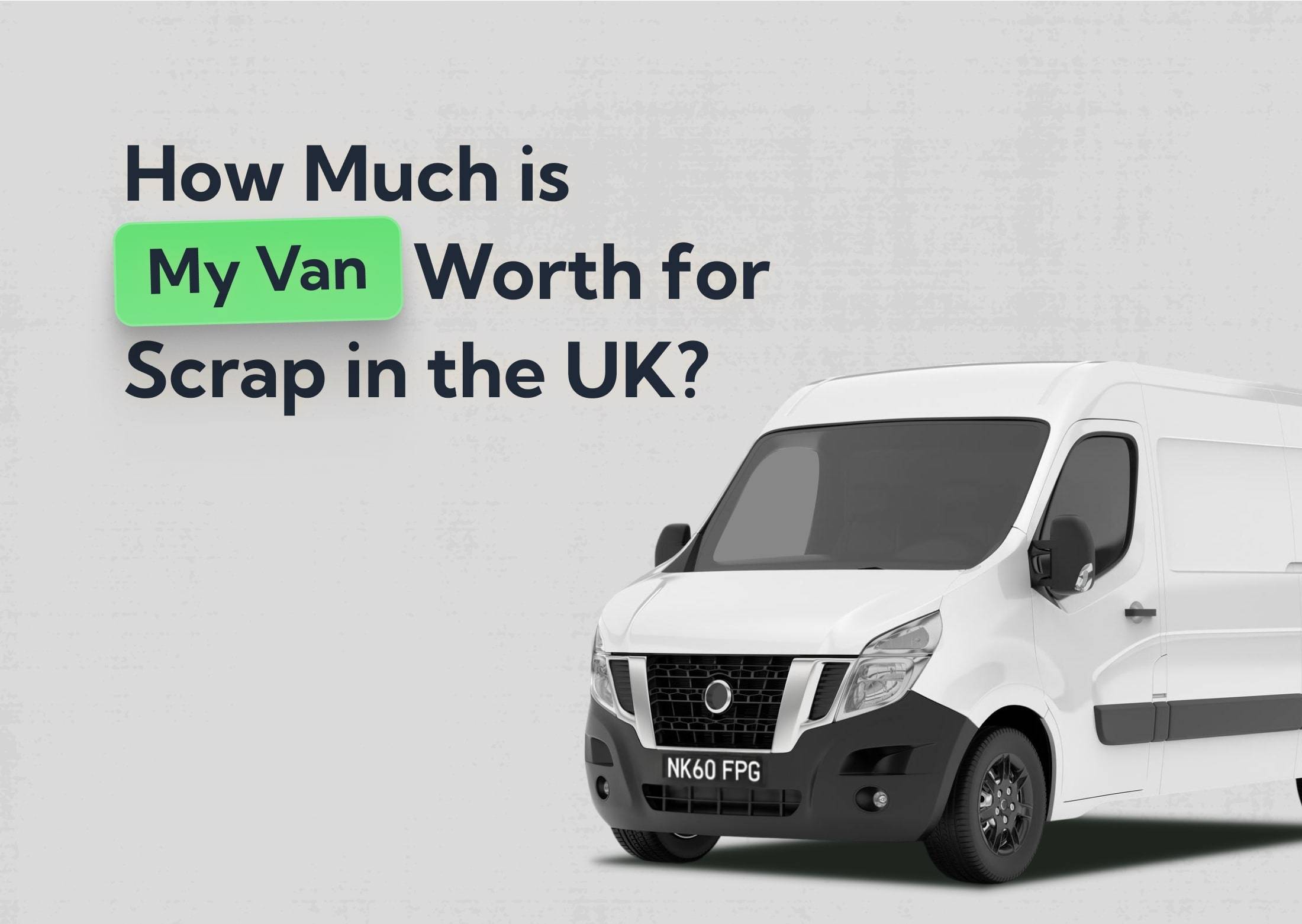
Listen to this story
If your van has reached the end of the road, scrapping it is the fastest and most straightforward option. But before you hand over the keys, you’ll want to know how much it’s worth. Otherwise, you probably won’t get a great deal.
The value of a scrap van isn’t fixed. In the UK, most vans fetch between £200 and £600 for scrap, depending on their weight, condition, and current scrap metal prices. Some vans fetch only a few hundred pounds, while others can bring in much more if they still have usable parts.
In this guide, we explain how to work out what your van is worth for scrap in the UK and what factors affect the final price you’ll be offered.
What's in this article
What affects the scrap value of a van
The scrap value of a van comes down to a handful of key factors.
Weight is the biggest driver, since scrap metal is priced by the tonne, meaning larger vans usually fetch more. Current market rates for steel, aluminium, and other metals also make a big difference as prices rise and fall each month.
Beyond that, a van’s age, condition, and mileage add value if certain parts are still in demand for resale.
Even details like whether the van has a catalytic converter, alloy wheels, or an intact engine can increase what you’re offered. Location matters too, as scrap dealers vary in what they’ll pay and how far they’ll travel for collection.
Make, model, and year
The type of van you’re scrapping has a direct impact on value. Popular makes and models like Ford Transit and Mercedes Sprinter fetch more because their parts are in higher demand. Newer vans also carry more resale potential, as their components are often still usable in the second-hand market.
Current scrap metal prices
Scrap dealers base much of their pricing on the value of metals like steel, aluminium, and copper. Since vans are made mostly of steel, the going rate per tonne plays the biggest role in what you’ll be offered.
These prices aren’t fixed, either. They change month by month depending on global demand and recycling markets. When rates are high (generally in the spring and summer months), you can expect a better return for your van.
If it’s the dead of winter, though, the difference is only a couple of hundred quid. That’s not enough to justify keeping the van for another six months.
Weight and size of your van
Weight is one of the most predictable factors in valuing a scrap van. The heavier your van, the more it’s going to fetch at a scrap yard.
Scrap metal is priced by weight, and larger vans simply contain more metal to recycle. So, a long-wheelbase Transit will bring in more than a compact city van, even if both are in the same condition.
Whether it’s running or not
A van that still starts and drives is normally worth more than one that doesn’t. Working engines, gearboxes and other mechanical parts can be removed and sold on before the rest of the van is scrapped.
That said, there are usually still salvageable parts, even if you are trying to scrap a non-runner.
Condition: is it complete, or stripped?
Scrap dealers pay more for vans that are complete. If the van still has its engine, gearbox, catalytic converter, wheels and interior, it carries both metal value and parts value. A stripped shell, on the other hand, will only fetch scrap metal rates and may even be harder to collect.
Location and distance from the scrap yard
Scrap dealers factor in the cost and effort of collection, so if you’re far from their yard, they may reduce the offer to cover transport. On the other hand, if you’re within easy reach of a local authorised treatment facility (ATF), you’re more likely to get the full value of your van.
What the experts say

Anthony Sharkey
Should you sell your van for scrap or parts?
Scrapping is the quickest and most straightforward way to dispose of a van, especially if it’s old, damaged, or not worth repairing. You get a guaranteed payment, the paperwork is handled, and the van is taken off your hands in one go.
Selling parts sometimes brings in more money, particularly if your van has valuable components. But breaking a van takes time, storage space and a way to find buyers for each part. You also need to deal with what’s left once the sellable items are gone.
Legal requirements when scrapping a van
When you scrap a van in the UK, there are a few legal steps you absolutely have to follow:
1. Find an ATF.
Every scrap van has to go to an Authorised Treatment Facility (ATF). These are scrap yards licensed by the Environment Agency (in England and Wales), SEPA (in Scotland) or NIEA (in Northern Ireland) to handle end-of-life vehicles.
Using an ATF ensures the van is de-polluted safely and in line with the UK’s environmental rules. If you use an unlicensed operator, you risk fines and won’t get the official paperwork you need to prove the van has been scrapped.
We can help you find a scrap yard near you.
2. Gather documentation.
Before scrapping your van, make sure you have the right paperwork ready.
The V5C logbook (vehicle registration certificate) is the key document, as it proves you’re the registered keeper. If you’ve lost it, apply for a replacement from the DVLA for £25. ATFs will also ask for proof of ID (driving licence or passport) and address (utility bill) to confirm ownership.
3. Remove private plates (if you have them).
If your van has a personalised registration, take the plates off before it goes to the scrap yard. To keep or transfer the number, you’ll need to apply through the DVLA’s retention or transfer service, which can usually be done online.
Important: If you don’t do this, the plate will be scrapped along with the van and permanently lost.
4. Tell the DVLA.
You’re required to notify the DVLA once your van has been scrapped. This removes your name from the vehicle record and stops you from being liable for road tax, insurance, and penalties linked to the van.
The ATF will help you with this (they have to notify the DVLA as well). But it’s still your responsibility to make sure the DVLA is informed. You can do this online or by post using section 9 of the V5C.
If you scrap your van with us, we’ll handle the full de-registration process for you.
5. Get a Certificate of Destruction.
Once your van has been scrapped, the ATF will issue a Certificate of Destruction (CoD). This document is official proof that the vehicle has been permanently taken off the road and that you’re no longer legally responsible for it.
You’ll receive your copy by post within 7 working days. Keep the certificate safe, as it protects you from future claims or fines relating to the van. Without a CoD, you can’t be certain the vehicle was scrapped properly.
Where to scrap your van: top options in the UK
When it comes to scrapping a van, you have three routes to choose from:
- Using a specialist car buying service
- Going directly to a local ATF
- Donating your van to charity schemes
Each choice comes with different advantages in terms of price, convenience and speed.
1. Car.co.uk (the best scrap van buying service)
Car.co.uk makes scrapping your van simple, fast and completely hassle-free. Unlike most other car buying services, we don’t just look at the weight of your van; our system also factors in the value of its saleable components, meaning you get a fairer, often higher quote.
The process is fully hands-off for you. We handle quotes, arrange free collection (usually same-day or next-day) and take care of the DVLA de-registration. You can compare local offers in one place and pick the one you like best.
As soon as we collect your van, our integrated payment system releases the money straight into your bank account. We only work with fully licensed ATFs and follow the Scrap Metal Dealers Act 2013, so you can be 100% confident the process is legal and above board.
2. Taking it to the ATF yourself
Taking your van directly to a local scrap yard or Authorised Treatment Facility (ATF) is the alternative to the above option. You deal directly with the yard, which is great if you don’t mind the extra legwork and prefer face-to-face interaction.
The downside is that not every yard offers free collection, so you may need to arrange transport yourself if the van isn’t drivable. You’ll also be responsible for verifying that the scrap yard is licensed as an ATF; otherwise, you won’t receive a Certificate of Destruction.
3. Donating your van to charity
Another option is to donate your van through a charity vehicle scheme. In this case, the van is collected and scrapped by a licensed ATF and the proceeds go directly to the charity you choose.
You won’t receive the full scrap value yourself, but it’s a simple way to get rid of an unwanted van while supporting a good cause. Once you’re done, you’ll get a receipt for your donation and you might qualify for a tax write-off.
Final thoughts
The scrap value of a van isn’t fixed. It depends on weight, condition, parts demand and market metal prices. Choosing where to scrap it makes a difference, too.
If you want maximum convenience and guaranteed payment, our online service handles everything from quotes to collection and DVLA paperwork. If you want to do good with your van’s final value, though, consider donating it to charity.
Whichever route you take, always use a licensed ATF and make sure you get a Certificate of Destruction. That way, you know your van has been scrapped legally and that you’re no longer responsible for it.
Frequently asked questions
ASAP. You can get a free valuation through Car.co.uk in seconds, compare offers instantly and book a same- or next-day pickup. Payment is released straight to your bank as soon as the van is collected.
All in all, you can have the van off your hands in less than 24 hours (depending on local availability, assuming you book earlier in the day).
Technically, no. It’s possible to scrap a van without the V5C logbook. But it makes the process harder and can reduce the price you’re offered. Some scrapyards won’t accept a van without it, and those that do will pay less because of the extra admin.
Without a logbook, you’ll need to notify the DVLA by post with a signed letter from both you and the ATF, which takes longer to process. The simpler option is to apply online for a replacement logbook for £25 (it usually arrives within five working days).
Yes, but it’s a lot more difficult. Without wheels, the scrap dealer will need specialist equipment to move the van, which affects collection. You’ll also lose significant value, since wheels are solid metal, and alloys in particular add a good amount to the overall scrap price.
If you’re scrapping a car without wheels, it’s important to remember that you absolutely have to tell the collection crew beforehand. Otherwise, they’ll arrive without the proper equipment (since most cars just roll onto the flatbed), and it’ll be a complete waste of time.
It depends. If the van is going purely for scrap metal, you won’t get extra just because it starts (scrap dealers only care about the metal). But if it’s being broken for parts, a working engine, gearbox and other mechanical components add to its value compared with a non-runner.
Use Car.co.uk. Our system makes scrap dealers compete for your van, so you see the best offers in one place. Because you’ve got full transparency, yards can’t lowball you; they know you can compare and choose instantly.
Mileage doesn’t directly determine scrap value, since payment is based on weight and metal content. But it does influence the condition of parts. Mileage equates to wear and tear, so a low-mileage car will have more (and better) reusable components.
That said, a low-mileage van with working components is worth more sold for parts or as a whole vehicle rather than scrap.
Out of 132,090 scrapped cars in our database, just a tiny fraction (2.9%) were scrapped with fewer than 50k miles (most of them Cat A or Cat B write-offs). According to our internal data, the average mileage of vehicles scrapped in the UK was 120,580 miles.
No. You need to settle the finance first, because until then, the finance company is the legal owner of the van. Once the agreement is cleared and you have full ownership, you’re free to scrap it.
The main document is your V5C logbook, which proves you’re the registered keeper. Some scrap yards may also ask for photo ID and proof of address to confirm ownership. Once the van is scrapped, the ATF will give you a Certificate of Destruction. Keep this safe as proof you’re no longer responsible for the vehicle.
The scrap yard (ATF) issues the Certificate of Destruction and notifies the DVLA on their side. But the ultimate responsibility still falls on you. Use the DVLA’s online ‘Tell DVLA you've sold, transferred or bought a vehicle’ service or notify them by post using the V5C/3.
Yes. You’re free to take out the stereo, scrap car battery or any other small parts before scrapping your van. Just let the scrap yard know what’s missing because it will slightly affect the price they offer.
Yes, prices vary by region. Scrap yards in urban areas or near major ports tend to pay more because they have higher demand and better resale channels. Rural yards might offer less, especially if collection requires extra travel. Comparing offers from different locations is the best way to maximise value.
About Car.co.uk

Share on
Latest news & blogs


